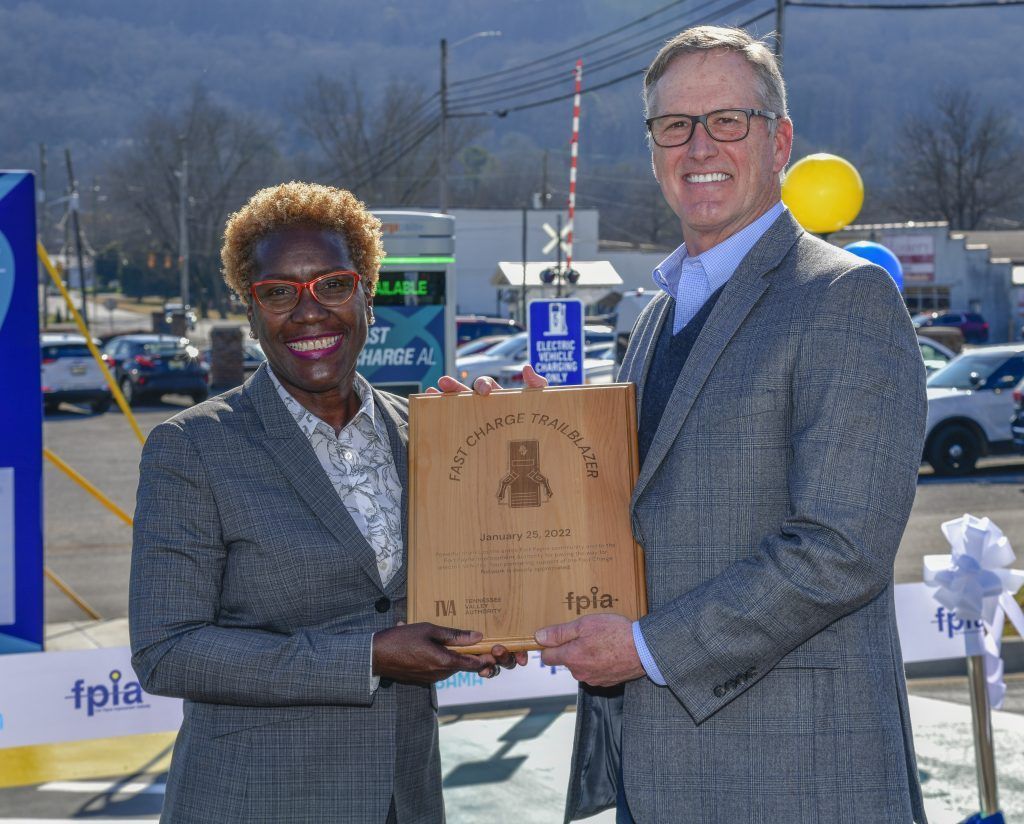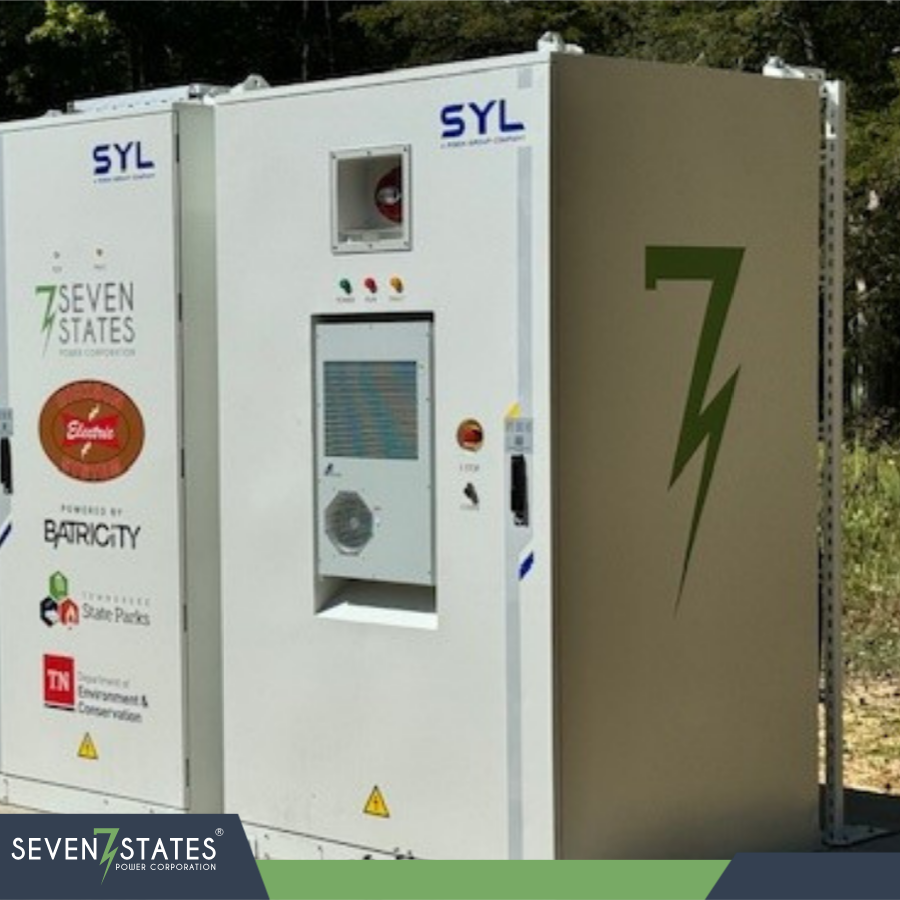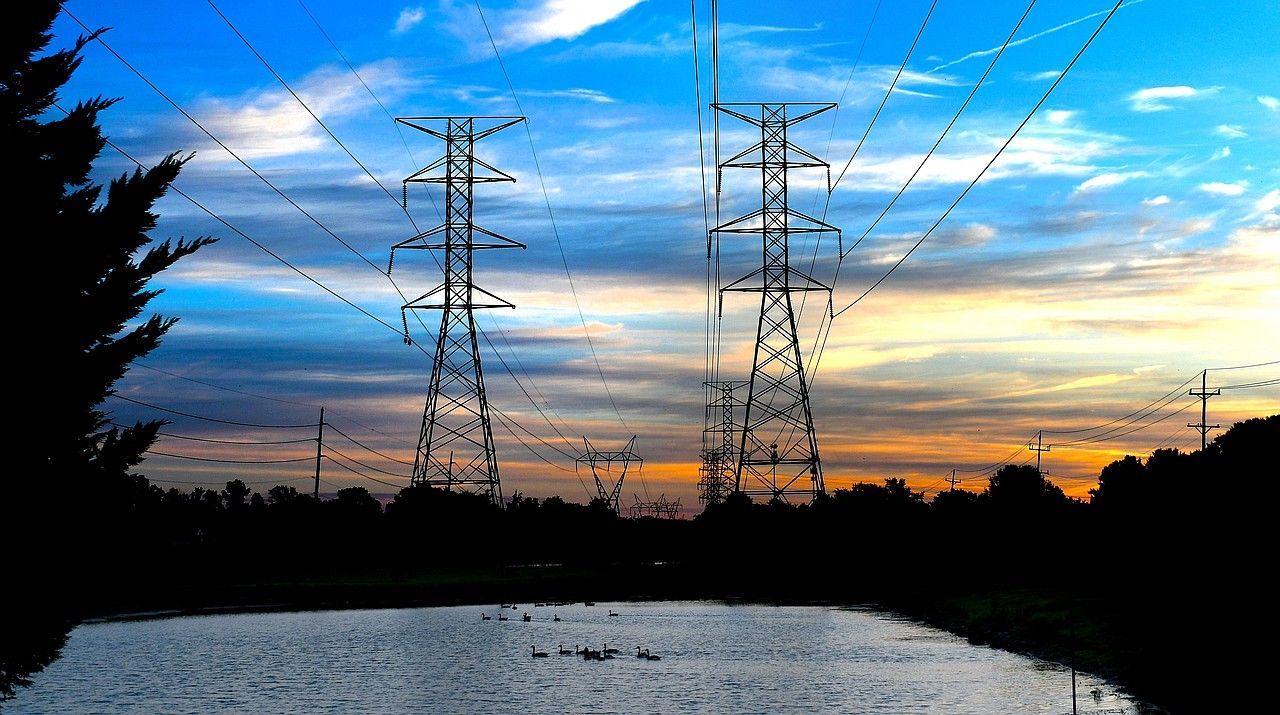
Earlier this year, Seven States was proud to join member-owner Fort Payne Improvement Authority (FPIA), the Tennessee Valley Authority (TVA), and the Alabama Department of Economic and Community Affairs (ADECA) in celebrating the installation of two electric vehicle (EV) fast chargers in Fort Payne, the first operational charging site in TVA’s regional Fast Charge Network.
The Fast Charge Network supports the broader National Electric Highway Coalition, enabling long-distance electric vehicle travel by placing public fast chargers every 50 miles along interstates and major highways throughout Alabama and across the United States.
Seven States provided technical and project management support to FPIA on the project and stands ready to assist all LPCs interested in the program.
“The Seven States team was instrumental in the success of our EV Charger project in Fort Payne. The knowledge and hands on support from grant preparation to charger installation and start-up allowed the project to run smoothly, and ultimately be first in the TVA Fast Charge Network,” said Mike Shirey, General Manager of FPIA.
To learn more about the project in Fort Payne, click here.
“We were thrilled to partner with FPIA, TVA and ADECA on the fast charger project and are eager to use this blueprint across the Tennessee Valley to assist member-owners as they deploy charging stations in their service territories,” said Betsey Kirk McCall, President and CEO of Seven States.
Seven States is working with nearly 40 LPCs to install more than 80 chargers across the Valley as part of the Fast Charge Network and continues to work with TVA, state agencies, Drive Electric Tennessee, and other stakeholders to maximize access to grant funding which will lead to the deployment of more chargers.
Up next, Seven States is partnering with member-owner Warren Rural Electric Cooperative Corporation (Warren RECC) and TVA on the installation of two electric vehicle fast chargers. As the project nears completion, Warren RECC will soon operate fast chargers in addition to the level 2 chargers previously deployed in their service territory and available to the public.
“We are excited to work with Seven States, Hucks, and TVA to introduce electric vehicle charging along the Western Kentucky Parkway in Ohio County. This project supports the continued innovation in the automotive industry and ensures that our communities are ready for the future,” said Stephen Miller, Electrical Engineer at Warren RECC.
Have questions about the Fast Charge Network program or any EV related topic? Contact Lance Irwin lirwin@7spc.com or Joe Knox jknox@7spc.com on our team, who can support all of your EV charging, fleet conversion, and electrification needs.




